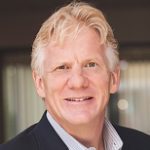 The History of US Healthcare
The History of US Healthcare
By Dr. Nick van Terheyden aka Dr. Nick
Twitter: @drnic1
Host of Dr. Nick: The Incrementalist – #TheIncrementalist
On this episode I spoke with Dr. Christy Ford Chapin, Ph.D., Associate Professor Department of History at the University of Maryland Baltimore County (@UMBC) and author of Ensuring America’s Health: The Public Creation of the Corporate Health Care System that dives deep into the US Health care system tracing the history and reasons we have ended up with a system that is currently (not broken) working as designed. Christy wrote an op-ed for the New York Times that received a lot of interest: How Did Health Care Get to Be Such a Mess, which starts to lay a potential pathway out of this morass:
It’s easy to see the challenge of real reform: To actually bring down costs, legislators must roll back regulations to allow market innovation outside the insurance company model.
Episode NOW on Demand
Christy was also a contributor to this article in Fortune: “Is it time for your business to hire a chief public health officer?” that lays out a future that decidedly learns from our past:
Any fool can learn from experience
The trick is to learn from other peoples experience
🙏💡— Ñick van Terheyden, MD – “Dr Ñiçk” (@drnic1) October 20, 2020
And brings this role back from the Industrial Revolution where, as you will hear, the initial focus was on preventing accidents and improving safety in factories to counter the negative publicity. We lost sight of this with the move to a white-collar service economy;
While occupational health and safety departments still exist, they’re “just not as big a deal” and often focused on compliance with OSHA regulations, Chapin says.
TL;dr – this is not just protection and avoidance of bad PR but an opportunity for investment in the health, happiness and well being of employees.
We dive into the history, which contrary to the widely held belief that the US healthcare system was the result of the wage controls instituted in World War 2 – even the New York Times suggesting this was the root cause.
You can hear about how research takes place (and why Anthropology and Historians take longer to do their thesis) as they struggle with primary sources and access and the important find of the American Medical Association (AMA) (@AmerMedicalAssn) Papers at the University of Texas. The history dates back to 1938 and offers a window into thinking at the time by the AMA. They were reviewing lots of different models with various interested parties and the government all pushing for change. Many would be surprised to discover that the AMA fought hard against a competitive marketplace preferring a model that allowed physicians the autonomy to make decisions in the best interest of their patients. They insisted on a model that had separate insurers and while everyone recognized the underlying cost problems with a fee for service system accepted the risk. Over the course of history, the power shifted incrementally away from the physician to the insurance providers as they reigned in cost, all the while regulatory groups applying band-aids to a leaking ship.
Rolling Back Regulation
Listen in to hear Christy’s thoughts on some of the opportunities we have to rectify the system, starting with rolling back regulations that don’t work and have limited the innovation capacity of the system clinical staff from innovating and coming up with solutions to better serve the patients. She talks about one example of the Direct Primary Care Groups a model that has many elements of the old way medicine was practiced, focuses on the patient and keeping them well, initially centered on primary care
And as we continue our journey through the COVID19 pandemic health and wellness will continue to play a central role, and delivering on this for employees is log in to require long term commitment by employers and the importance of having a Chief Public Health Officer either on staff or available virtually.
About the Show
For years Dr. Nick van Terheyden aka Dr. Nick, has served as a voice on the impact of new technologies on healthcare, earning a reputation as a leading authority on where the future of medicine is going. Combining powers of observation and real world experience, Dr. Nick has seen many predictions come true and makes the case that innovations in healthcare can be accomplished incrementally, not just by moonshot events. Tune in to hear Dr. Nick: The Incrementalist and his guests discuss what the future of healthcare looks like, how we will get there, and what it will take to improve healthcare for all.
This article was originally published on the Dr. Nick – The Incrementalist blog and is republished here with permission.
